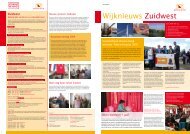freakonomics
freakonomics
freakonomics
You also want an ePaper? Increase the reach of your titles
YUMPU automatically turns print PDFs into web optimized ePapers that Google loves.
Copyright<br />
About the Publisher<br />
AN EXPLANATORY NOTE<br />
The most brilliant young economist in America—the one so deemed, at least, by a jury of<br />
his elders—brakes to a stop at a traffic light on Chicago’s south side. It is a sunny day in<br />
mid-June. He drives an aging green Chevy Cavalier with a dusty dashboard and a<br />
window that doesn’t quite shut, producing a dull roar at highway speeds.<br />
But the car is quiet for now, as are the noontime streets: gas stations, boundless concrete,<br />
brick buildings with plywood windows.<br />
An elderly homeless man approaches. It says he is homeless right on his sign, which also<br />
asks for money. He wears a torn jacket, too heavy for the warm day, and a grimy red<br />
baseball cap.<br />
The economist doesn’t lock his doors or inch the car forward. Nor does he go scrounging<br />
for spare change. He just watches, as if through one-way glass. After a while, the<br />
homeless man moves along.<br />
“He had nice headphones,” says the economist, still watching in the rearview mirror.<br />
“Well, nicer than the ones I have. Otherwise, it doesn’t look like he has many assets.”<br />
Steven Levitt tends to see things differently than the average person. Differently, too,<br />
than the average economist. This is either a wonderful trait or a troubling one, depending<br />
on how you feel about economists.<br />
—The New York Times Magazine, August 3, 2003<br />
In the summer of 2003, The New York Times Magazine sent Stephen J. Dubner, an<br />
author and journalist, to write a profile of Steven D. Levitt, a heralded young economist<br />
at the University of Chicago.<br />
Dubner, who was researching a book about the psychology of money, had lately been<br />
interviewing many economists and found that they often spoke English as if it were a<br />
fourth or fifth language. Levitt, who had just won the John Bates Clark Medal (awarded<br />
every two years to the best American economist under forty), had lately been interviewed









